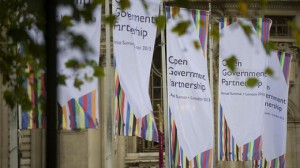The G20 Leaders established the Anti-Corruption Working Group (ACWG) at the Toronto Summit in 2010 in recognition of the significant negative impact of corruption on economic growth, trade and development. The work of the ACWG has been guided by two-year action plans that include commitments by G20 countries to ratify and implement the United Nations Convention against Corruption. Still, at the end of 2014, corruption continues to represent a significant threat to global growth and financial stability.
The ACWG recognizes that promoting greater transparency and integrity in the public sector is essential to preventing the misuse or diversion of public funds, which can have a significant negative impact on economic growth and development. The G20 must continue to lead by example in this area by ensuring that government agencies, policies, and officials model international best practices for public transparency and integrity.
For that, the new 2015-16 G20 Anti-Corruption Implementation Plan that has just been ratified in the last Leader’s summit in Brisbane includes different areas of action with specific commitments, including several focused on Open Data. More specifically:
The ACWG has identified open data, public procurement, whistleblower protections, immunities from prosecution, fiscal and budget transparency, and standards for public officials as main issues affecting the public sector transparency and integrity which merit particular attention in 2015-16.
What’s the problem?
Open data initiatives play an important role in promoting public sector transparency and accountability, and can also have significant benefits for the private sector. In particular, open data helps businesses to assess risks and opportunities in different markets so they can make better investment decisions. Open data also gives citizens better visibility of the flow of public money across borders, and enhances public debate on the use of public money.
The G20 value add
Building on open data initiatives developed in other fora (e.g. the G8 Open Data principles), the G20 will lead by example in promoting and implementing international best practices on open data.
Links to the G20 broader agenda
Open data has important benefits for the wider G20 agenda, for example, with regard to investment by empowering the private sector to make better investments decisions.
Specific commitments in the current G20 implementation plan
- The ACWG will prepare a G20 compendium of good practices and lessons learned on open data and its application in the fight against corruption.
- The ACWG will prepare G20 Open Data Principles, including identifying areas or sectors where their application is particularly useful and taking into account different national legal frameworks.
- G20 countries will complete self assessments of their open data frameworks and initiatives, with reference to the G20 Open Data Principles, and consider next steps.


